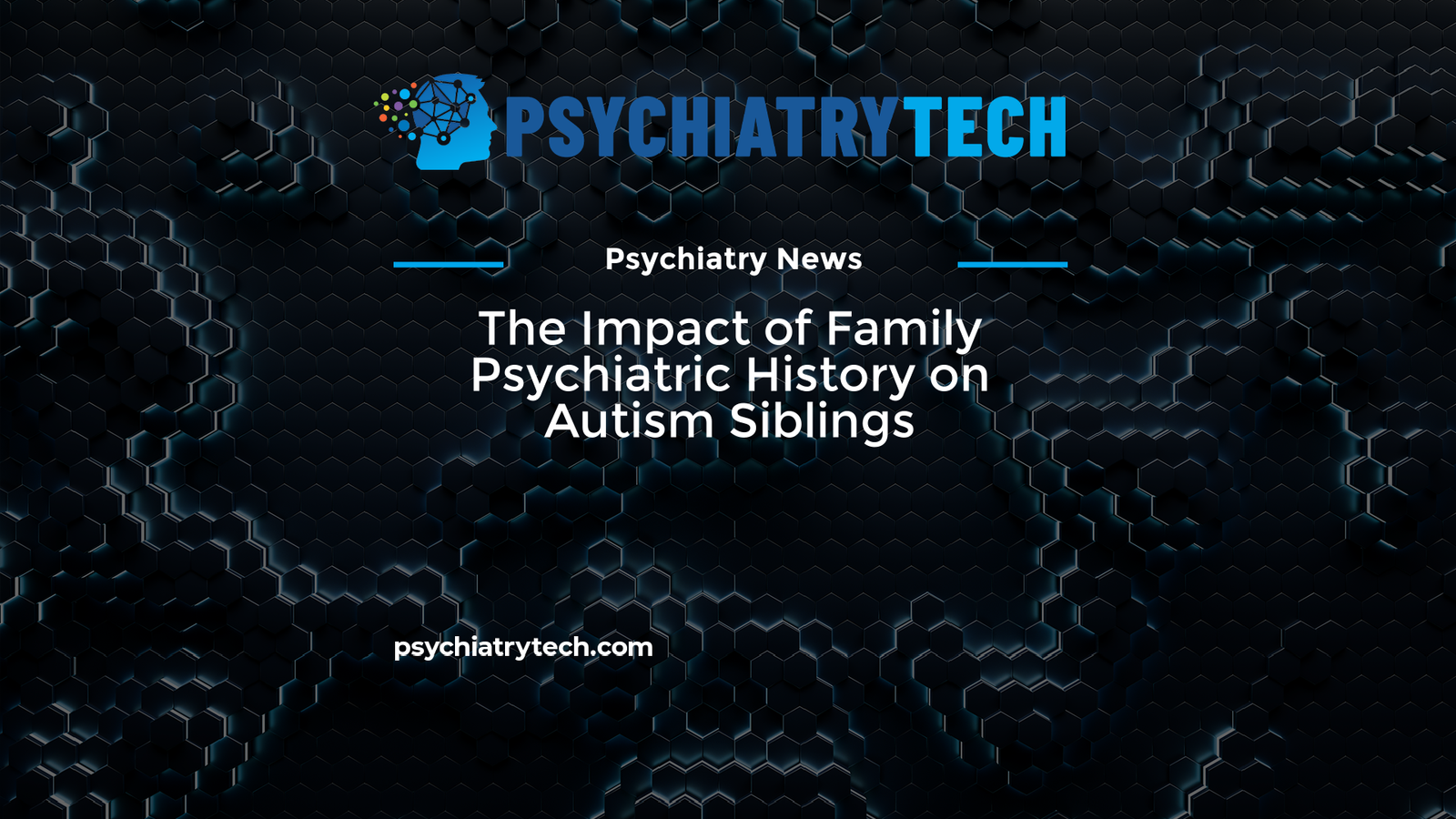The Impact of Family Psychiatric History on Autism Siblings
The dynamic between genetics, siblings and autism continues to spark interest among researchers in the field of psychiatry. A new study emanating from the esteemed Yale School of Medicine delves into the influence that family history may have on siblings of children with autism.
Key Findings

Discover The World's MOST COMPREHENSIVE Mental Health Assessment Platform
Efficiently assess your patients for 80+ possible conditions with a single dynamic, intuitive mental health assessment. As low as $12 per patient per year.
Study Specifics
The research team, guided by Dr. Abha Gupta, observed over 300 siblings of children with autism spectrum disorder (ASD). Subjects were meticulously selected from the Autism Genetic Resource Exchange database, ensuring a diverse representation to avoid potential bias in the results. Autism Diagnostic Observation Schedule (ADOS), a widely accredited tool in psychiatry, was used to evaluate the severity of autistic symptoms in each participant, thereby ensuring consistency and precise results.
Interpretation of Results
Analyze the findings paints interesting pictures. Mothers with a history of psychiatric disorders gave birth to siblings with autism at more than twice the rate of mothers without similar histories. The study also found that when both the mother and father had a history of psychiatric disorders, the odds of producing offspring with autism increased by nearly four times, compared to couples with patients who did not have such histories.
Perhaps most intriguingly, the children who had a background marked by psychiatric history in their family legacy exhibited more severe symptoms of autism. This imbalance was especially apparent when considering communication challenges and restricted and repetitive behavior, known to be two core symptoms of autism.
The Broader Scope
The revelations from this study not only improve our understanding of the links between family psychiatric history and autism but also present potential avenues for future research and treatment approaches. They further affirm that genetic factors play a critical role in autism, as the psychiatric history of the family appears to have a significant impact on autism’s severity in siblings.
Implications in the Real World
This study’s implications extend well beyond the realm of academia. It accentuates the need for thorough psychiatric evaluations for parents, particularly individuals planning to start a family. A pre-conception psychiatric evaluation could potentially allow for early intervention measures to be placed in place before the infant is born. This new screening process could foresee potential family genetic predispositions and help with the early detection and treatment of autism.
Conclusion
Overall, the latest research from the Yale School of Medicine illuminates the importance of family psychiatric history in understanding autism spectrum disorder more comprehensively. These findings do not only enrich the field of psychiatry but could also lead the way towards more pertinent prenatal and postnatal care for families with a history of psychiatric disorders.
What new technologies or approaches in the field of psychiatry could help in early intervention measures or improved treatment of autism?
We invite you, our esteemed readers, to share our posts and generate discussions about these important issues on your own platforms. Let’s promote awareness and education about the crossroads of psychiatry and technology.

